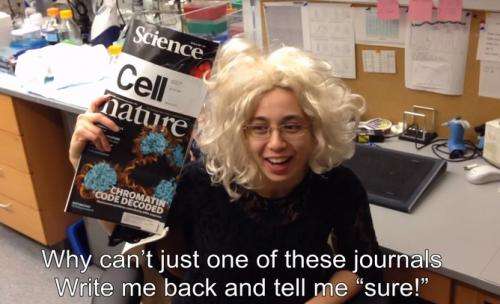Journals and researchers must respond to Schekman's move

Having climbed all the way to the Nobel Prize on a ladder made of papers published in Nature, Science and Cell, biologist Randy Schekman has declared that he is now going to boycott these luxury journals because he believes they damage science.
When asked for an opinion about Schekman's announcement few hours before it was published online, I replied that it would be easy to carp about the position he has adopted. And so it has proved to be.
Schekman has been branded as hypocritical since he owes much of his success to the journals he has denounced and because, in his tenure as editor at PNAS (Proceedings of the National Academy of Sciences), another prestigious journal, he exhibited many of the foibles that he finds in the editors at Nature, Science and Cell. His clear conflict of interest as editor-in-chief at eLife, a new online journal that has deliberately set out to become a direct competitor of the top-tier journals, has not gone unnoticed. There have also been hard questions about the knock-on effects on the junior members in his lab, who have yet to make their way in a scientific culture that remains firmly in the thrall of these glamour journal publications.
He has been criticised for conflating too simplistically the issues of filtering and the push for open access, which aims to make the research literature freely available to all. And some have pointed out that a boycott, even if it resulted in the closure of Nature, Science and Cell, would simply shift the problem somewhere else because of the competition inherent in a world peopled by egotistical scientists striving for finite resources.
Well, yes to all that. These accusations have merit and demand good answers.
But the issue is not quite as simple as many of Schekman's critics would have it, nor, to be fair, as Schekman laid them out in his brief piece in The Guardian.
Too few commenters – with a few notable exceptions such as Michael Eisen – have been willing to see Schekman's announcement for what it is: a brilliantly orchestrated publicity stunt, timed for the week of his Nobel award when the full glare of the world's media would be upon him. Nor have they given Schekman much credit for having thought the issue through beforehand. This isn't the first time he has written about the problems due to journal prestige.
He is also putting his money where his mouth is, both by committing time to eLife which, despite aspiring to be a top-tier journal, has a declared policy of not promoting the impact factor metric and by being an early signatory of the San Francisco Declaration on Research Assessment (DORA), which is aiming to neutralise the poisonous effect of impact factors on science and scientific careers. (Impact factor is the average number of times other researchers cite a journal's paper, and it is commonly used to determine the quality of a publication.)
Instead there has been the repeated assertion that it is easy for a Nobelist to disregard the top-tier journals. But if it is so easy, why is Schekman the first to make such a stand? My guess is that he anticipated all the brickbats that have been flung his way but had the nerve to go ahead anyway.
Nevertheless, he could do more, and I expect that Schekman himself sees his recent declaration as simply a milestone on what has to be a long journey, given the abiding nature of the problem.
He could certainly have written a much better article than the one that was published in The Guardian, so I hope he will take time to respond to critics and to lay out his argument more carefully. In particular I would like to know how he talked through the move with his group and how he aims to mitigate the risks to the junior members' careers?
Philip Campbell, editor of Nature, issued a dignified response to the boycott announcement, pointing out his journal's long-standing relationship with the scientific community. He acknowledged the trouble with academia's sustained obsession with luxury journals. Campbell was also correct to remind people that Nature has done a good job drawing attention to the issue of impact factors in its editorials and reporting.
But I think journals such as Nature can do more. It is not sufficient to lay the problem at the feet of the research community when journals are part of that community. Or to shrug off advertisements of their impact factors when pitching for authors or readers as the work of the marketing department.
I would like to see these journals take a leaf out of another Nature-branded title, Nature Materials, which has in the past revealed the detail of the citation data behind the single-figure averages that are trumpeted each year when the new impact factors are published by Thomson-Reuters. That practice should become standard as it would help to demystify the allure of this quality proxy.
I would also like to understand the reasons why Nature, unlike Schekman, has not signed up to DORA, which represents a serious and determined move to bring in the culture change that Nature says it supports. Campbell has only said of DORA that "the draft statement contained many specific elements, some of which were too sweeping for me or my colleagues to sign up to". It would be helpful to know more about Nature's objections, to explore ways around them.
Of course, ultimately, it is the research community that has to act in concert. Schekman has made a bold move that has stirred up the issue afresh and for that I tip my hat to him. But I hope he is not done with this issue.
Journal information: Nature , Science , Cell , Proceedings of the National Academy of Sciences , Nature Materials
Source: The Conversation
This story is published courtesy of The Conversation (under Creative Commons-Attribution/No derivatives).
![]()
















